Film+
Scene of Rao Xueman’s Workshop & Masterclass on screenwriting
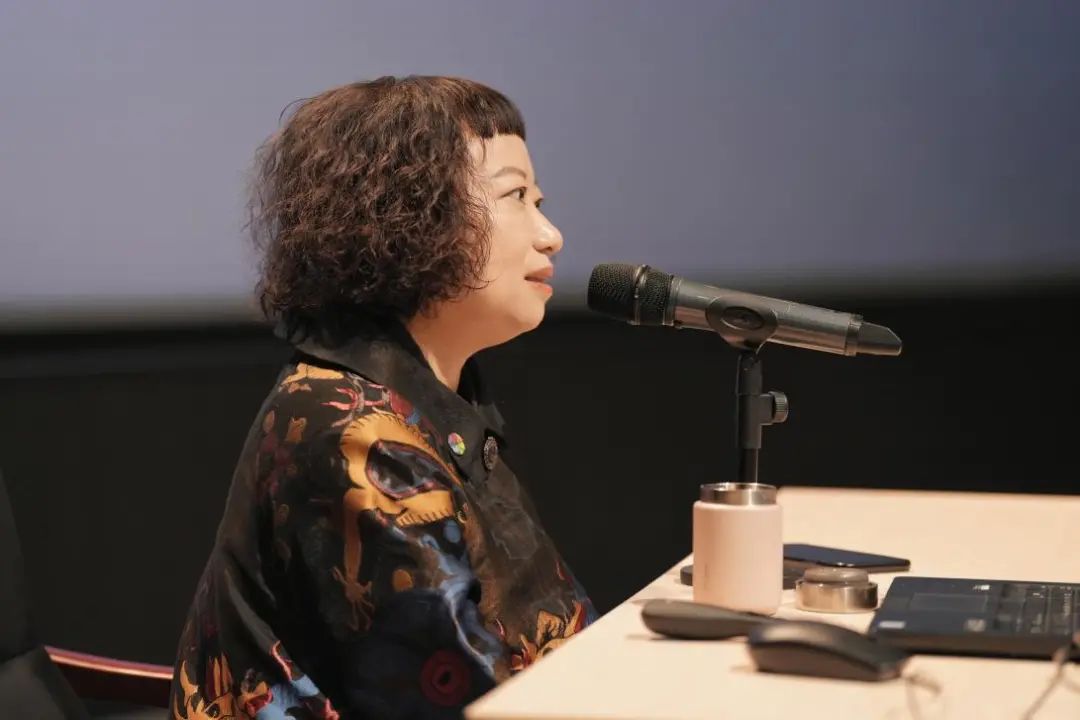
Scene of Rao Xueman’s Workshop & Masterclass on screenwriting
The duty of a good screenwriter is, first and foremost, to tell a good story.
A novel can be a “one-man novel”, but a screenplay cannot be a “one-man script”. To write a novel, a writer must have a concept and then put it on paper at a stretch. Writing a script is like making porcelain, a process that requires learning and skill, as well as feasibility.
▌Why do we become screenwriters - because we like it
For Rao Xueman, becoming a screenwriter is motivated by her love for the profession. Only this pure passion helps the creator go through the vicissitudes of time and reach the glorious moment when the work is recognized.
I began to write when I was 14 years old. I often get asked what writing means to me. Writing a novel is plain sailing for me. My contributions have never been rejected, and there are always readers who like my novels.
I did not really become a best-seller writer until I wrote my thirty-fifth book, The Left Ear. Being a writer gives me freedom, especially when you become a best-seller author and can write what you want. You can experience the ultimate in happiness at this time.
She firmly believes that the only thing that has supported her is “ardent love”. She hopes that everyone chooses to become a screenwriter because of their love.
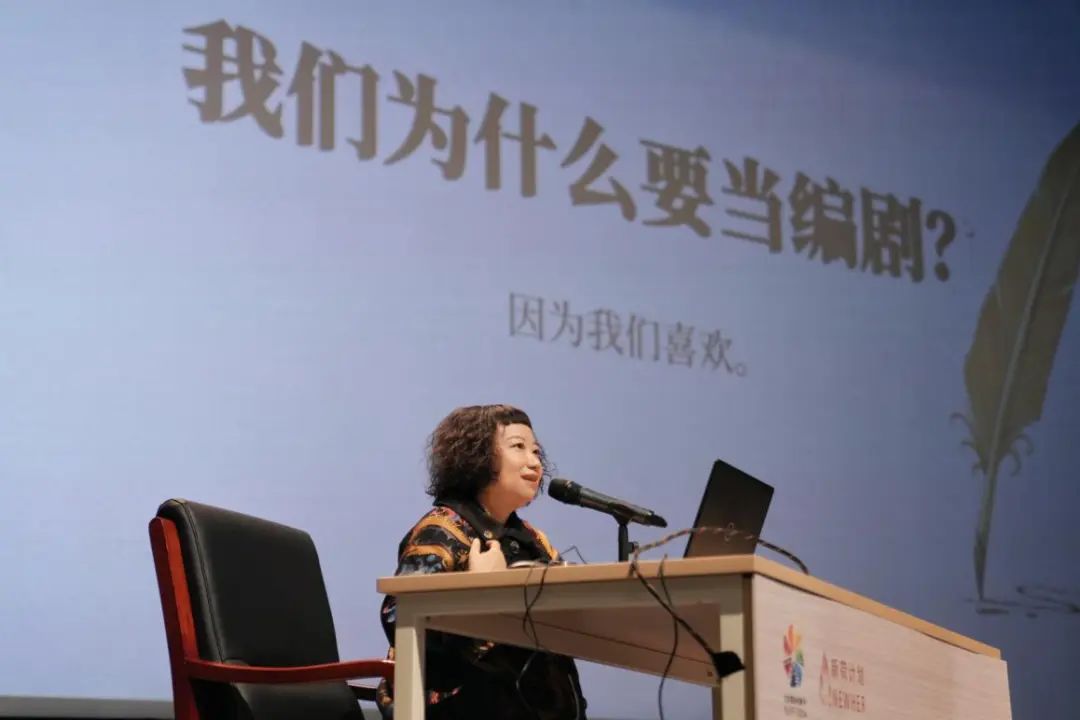
Scene of Rao Xueman’s Workshop & Masterclass on screenwriting
▌A screenplay is the foundation, and the story is the soul
It’s not enough to tell a story well or well. It must be so good that it is outstanding, unrivaled, miraculous, and soul-changing.
- Steve Jobs
There is no doubt that the duty of a good screenwriter is, first and foremost, to tell a good story. What is a good story? The first criterion is ease of understanding. You must have heard the story of Bai Juyi. After writing a poem, he will read it to the elderly and children to make sure everyone can understand it. Sometimes, I invite the company staff to read a script together after I finish writing. This is necessary because most people don’t actually have the experience of reading literature.
In writing a screenplay, I feel that: a novel can be “a one-man novel”, but a screenplay cannot be a “one-man script”. To write a novel, a writer must have a concept and then put it on paper at a stretch. Writing a script is like making porcelain, a process that requires learning and skill.
I used to think that as long as the script was well-crafted, filming and acting were the responsibility of others. However, film is actually a collective art. The script must be accessible to both the audience and all of the crew members. Otherwise, it will end up being neither fish nor flesh.
For The Left Ear, I added a car scene in the script where the vehicle cannoned into the sea at an M-junction in Fujian. It wasn’t until the production meeting that I realized that such description was a big trouble for the production department. The producer told me that they traveled the length and breadth of Fujian but could not find an M-shaped mountain road. I said that an L-shaped road was also acceptable. I never thought they actually went to find such road. They might think that the screenwriter must intend some special meaning for it.
Rao Xueman recommended young screenwriters to watch more films and analyze them, and participate in the work of the crew to better understand the filmmaking process. She believes that acquiring on-site experience is more effective than mere learning, and that screenwriters should come into contact with different lives and characters.
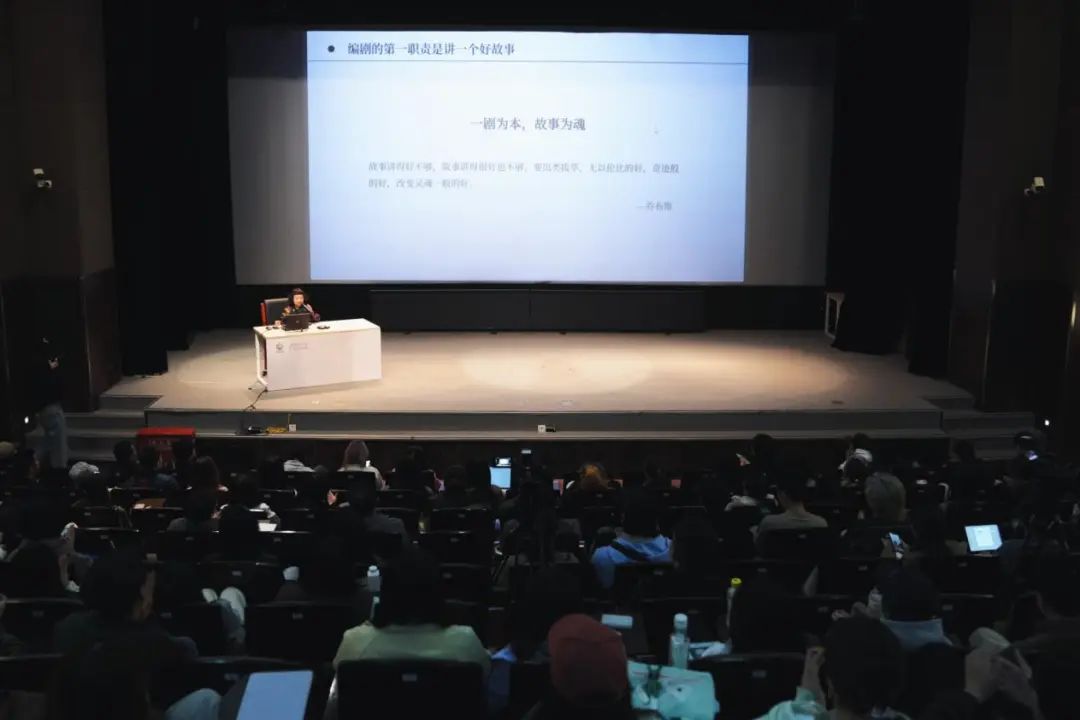
Scene of Rao Xueman’s Workshop & Masterclass on screenwriting
▌What is the source of inspiration for a good story?
Rao Xueman emphasized that to find inspiration for a good story, you must make contact with a wide range of different people, and that even unpopular characters can provide rich thinking and creative highlights. She recommended that screenwriters should communicate with people of all social classes and age groups.
I started writing about the pains of youth at the age of 14 until I was 50. I love the 17-year-old youth and I’ve met a lot of young people. I can wax lyrical when writing about young people, but when I write about parents, I feel out of my element. I think it’s important to find the type of writing you’re good at, and the inspiration that springs from your lives.
Rao Xueman said that screenwriters should concentrate on the subject matter they are good at. She encouraged screenwriters not to be afraid of genre films or being defined, because China has a large population, and any genre film has an audience. She also emphasized that fieldwork and communicating with people with real-world experience are more valuable in storytelling and character shaping than relying on an experienced team.
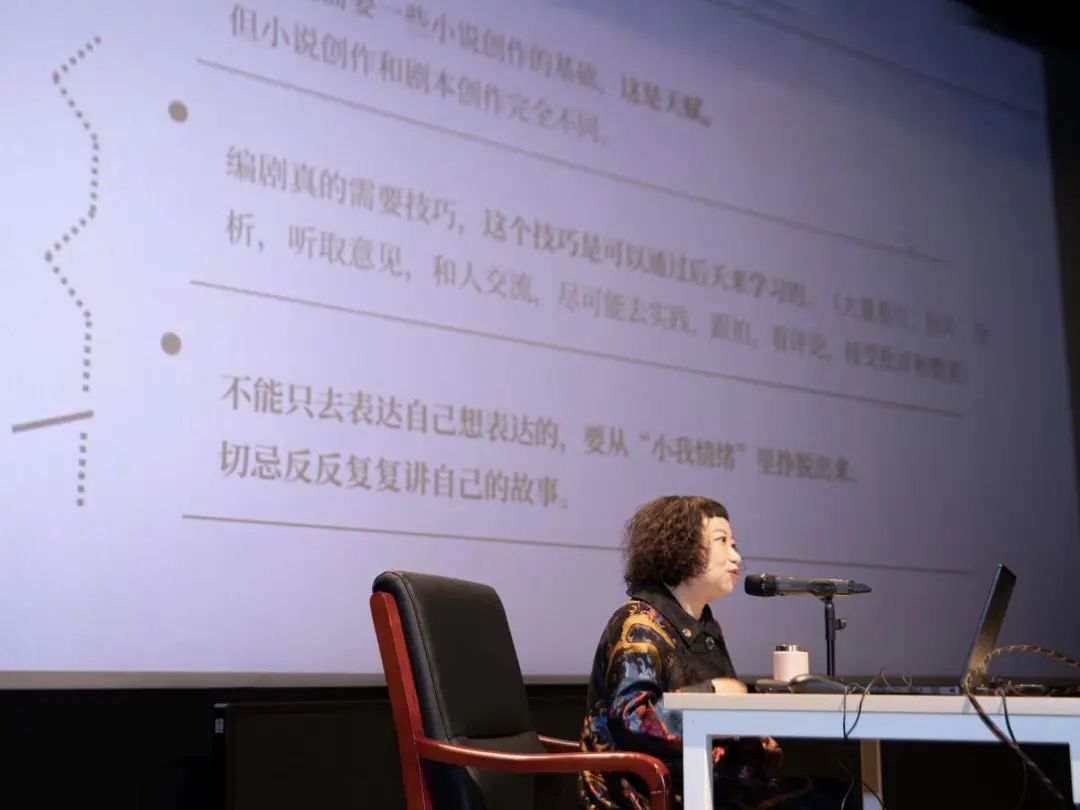
Scene of Rao Xueman’s Workshop & Masterclass on screenwriting
▌ Successfully creating characters is significant for a successful screenplay
Character shaping is an indispensable element of the script. If the characters are prosaic, the whole script may lack appeal. Screenwriters must create distinctive characters. As long as they have unique charisma, the audience will remember them, regardless of their disposition.
In order to bring the character to life, the screenwriter must be attentive in life, make contact with people of all descriptions, and gain a thorough grasp of the character’s language habits, behavior, and ways of thinking, so that the character is credible in the eyes of the audience. There are such characters in every film and television work. They may not be the protagonists, but they stand out in an unforgettable way.
Furthermore, there must be common ground in what the screenwriter writes. In a love story, for example, some screenwriters may write that a person misses the other for decades and cries while holding his photos in his hand every day, which I think is not realistic at all. There are a lot of changes as time goes on, and even a lovelorn person will forget past affections. If the screenwriter experiences strong emotions at the time, it will be difficult to break free from the small self, and this will prevent us from becoming a great-minded screenwriter with love. To ward off emotions of small self, I think the most important way is to increase knowledge and experience.
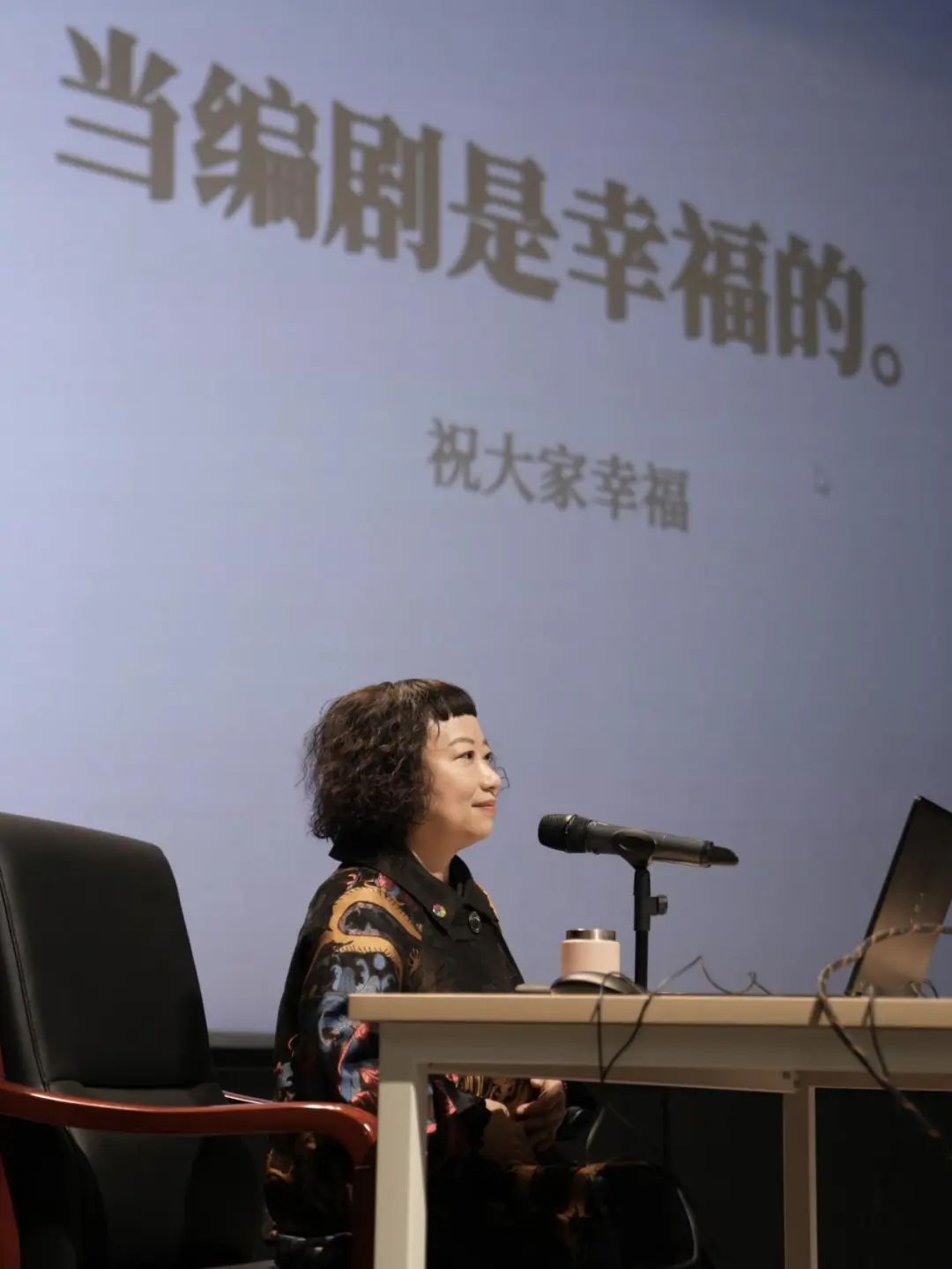
Scene of Rao Xueman’s Workshop & Masterclass on screenwriting
▌Making your lines recognizable is the best embodiment of your script style
When the story is easy to understand and the characters are credible, refreshingly different lines are particularly important. Unexpected yet plausible lines can be a pleasant surprise to the audience and add diversity to the actors’ performances.
In writing lines, we need to think a lot about how to make them refreshingly different, but also fit with the character’s personality and situation.
However, we shouldn’t go for this effect in every line, otherwise the script will be unintelligible. We should skillfully add a few distinctive lines appropriately, which will not only help the audience better understand the characters, but also add color to the whole script.
When I was a child, I wrote a story about a child and his mother. The mother was a fishmonger at a wet market. I wrote “Child, The vast ocean is for any fish to swim and the high sky is for any bird to fly.” My teacher pointed out that this was not in line with a mother’s identity. This left a deep impression on me. Thereafter, whenever I write a novel, I would think about whether the character could say something like this. In fact, each character has their own language system.
▌A good screenwriter must be market-aware
Rao Xueman said that market awareness is crucial for modern screenwriters. Screenwriters who understand the market are worth their weight in gold. If a screenwriter is responsible for production and investment, it will be easier for them to secure more support.
The screenwriter should consider whether the script can be adapted for the film. For example, if the script depicts a scene where “Ten thousand steeds gallop and blood flows like stream”, it may be difficult to film such a scene. A screenwriter is invaluable if you can understand the difficulties of filming and give neat solutions, such as merging scenes or finetuning some details, to facilitate filming without affecting the story and mood. Screenwriters who have the investors and capital in mind, have thinking, make concessions, or make smart fusions, often experience rapid success.
I’m not saying that screenwriters should completely cater to the market, but they should know how to consider practical feasibility in their creations, while maintaining the appeal of the story as well as the authenticity of the characters. In this way, they are more likely to produce works well-received by the audience.
▌Only screenwriters with a sense of social responsibility can write good works that will endure
In the early days of creation, Rao Xueman did not think deeply about the sense of social responsibility in her works. It was not until when he focused on the youth themes and met many young children in need of help that she realized her social responsibility — these children need a sympathetic ear.
I met a kid suffering from depression who told me that a cat has nine lives and that seven is enough for him. He made me realize that the dilemmas faced by adolescent children are far worse than we think. Therefore, I created the Golden Castle of Elfin based on that child, hoping that those teenagers who are experiencing difficulties receive attention and help through my works. As a creator, I am obliged to give attention to those groups who are often ignored by society, and use my works to convey positive energy and help them out.
The film can influence and help people more widely than novels. The film can draw public attention to social issues and thus catalyze social change. Films like Dying to Survive and Dearest
entertain the audience and also trigger public thinking on social issues.
As a creator, I always believe that a sense of social responsibility is vital. By giving attention to those who are often overlooked and sending positive energy, we can bring about positive change in society. At the same time, as a screenwriter, I am exploring my path of creation, using stories to express my perception of life and understanding of human nature.
▌Q & A
Young director Zhao Siying: In recent years, there has been a sluggish market for romantic films at home and abroad. Coupled with the social and cultural atmosphere, such as young people lacking faith in love, the current environment for romantic film creation is not good. What kind of romantic film can inspire you to create?
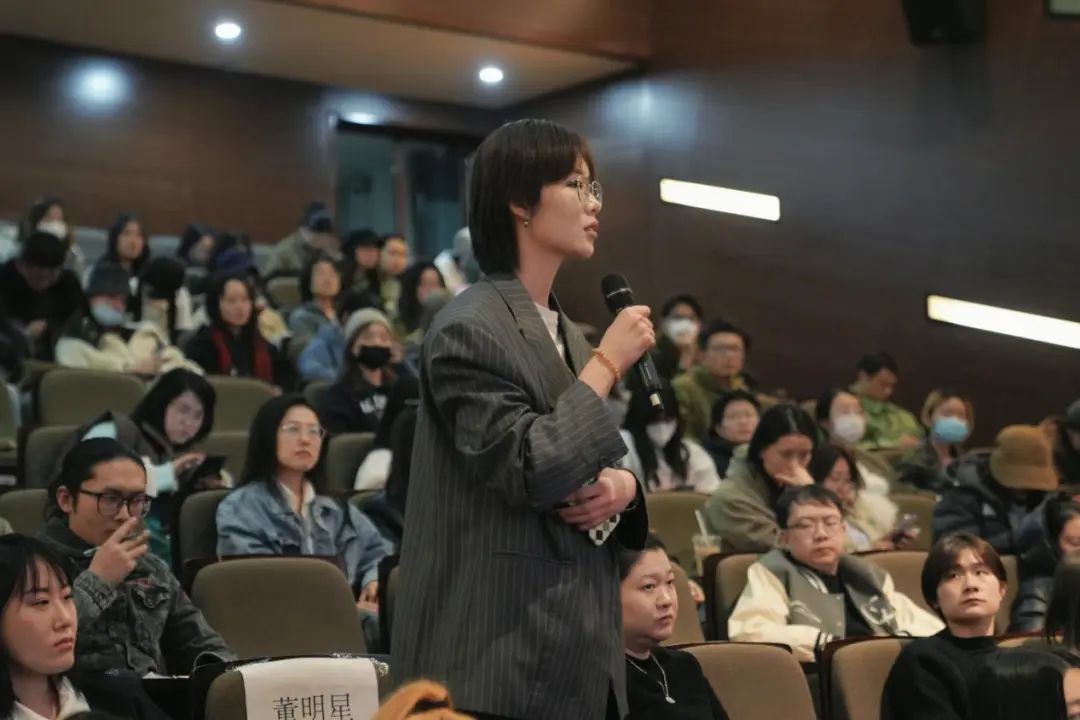
Q&A at Rao Xueman’s Workshop & Masterclass on screenwriting
Rao Xueman: Romantic films may seem superficial, and the subject matter may not be as important as other films that explore life and other serious topics, but we are all just ordinary people, and we all need love in our life. After the audience spends two hours in the cinema, they may believe in love and pull themselves together again. I think it’s meaningful for creators of romantic films. Some films show us that life is good. I hope your films can have such effect.
Q1: As a writer-turned-screenwriter, do you have any experience for newcomers?
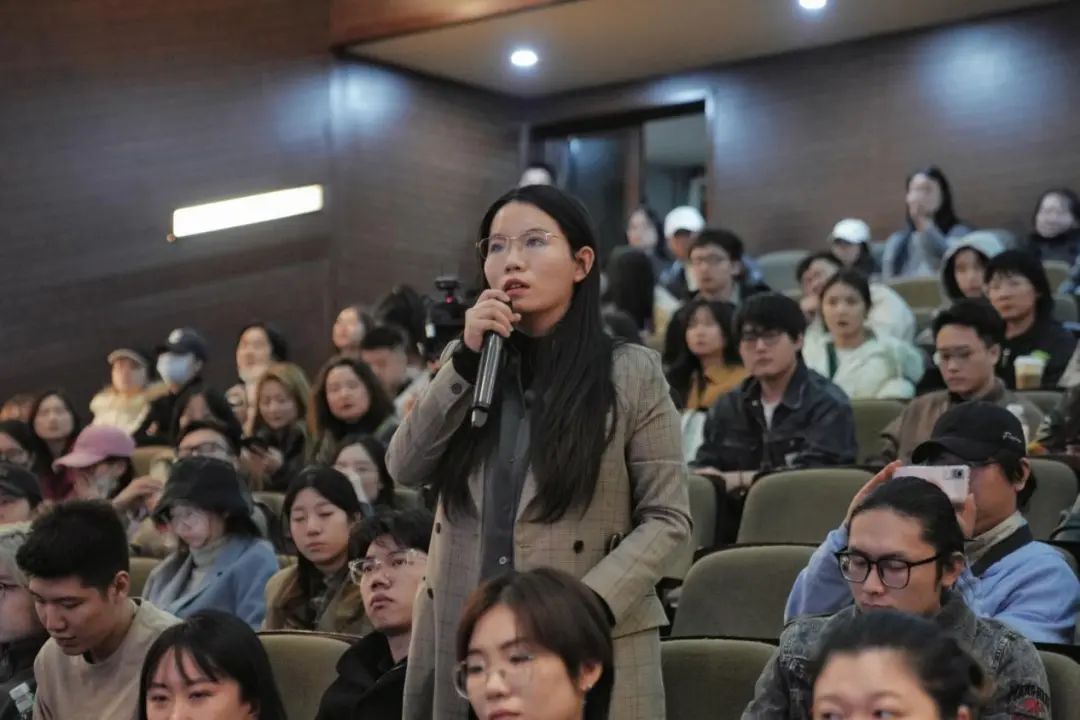
Q&A at Rao Xueman’s Workshop & Masterclass on screenwriting
Rao Xueman: The transition from text to visual presentation is similar to a quantum leap from 2D to 3D. An author may feel that the scenes in the story are vivid in their mind, and the words can portray the fury of the characters exhaustively. However, the film can convey the same emotion with just one tracking shot, because the visual language is intuitively expressive.
Different fields require diametrically opposed ways of thinking. I think the most effective way is to follow the crew as much as possible. If there is no such opportunity, writing practice and self-examination are essential. Although the process is difficult, perseverance is the key to success. It took me about six or seven years to get used to this transition.
Q2: How do you detach yourself from the story and characters in the process of writing?
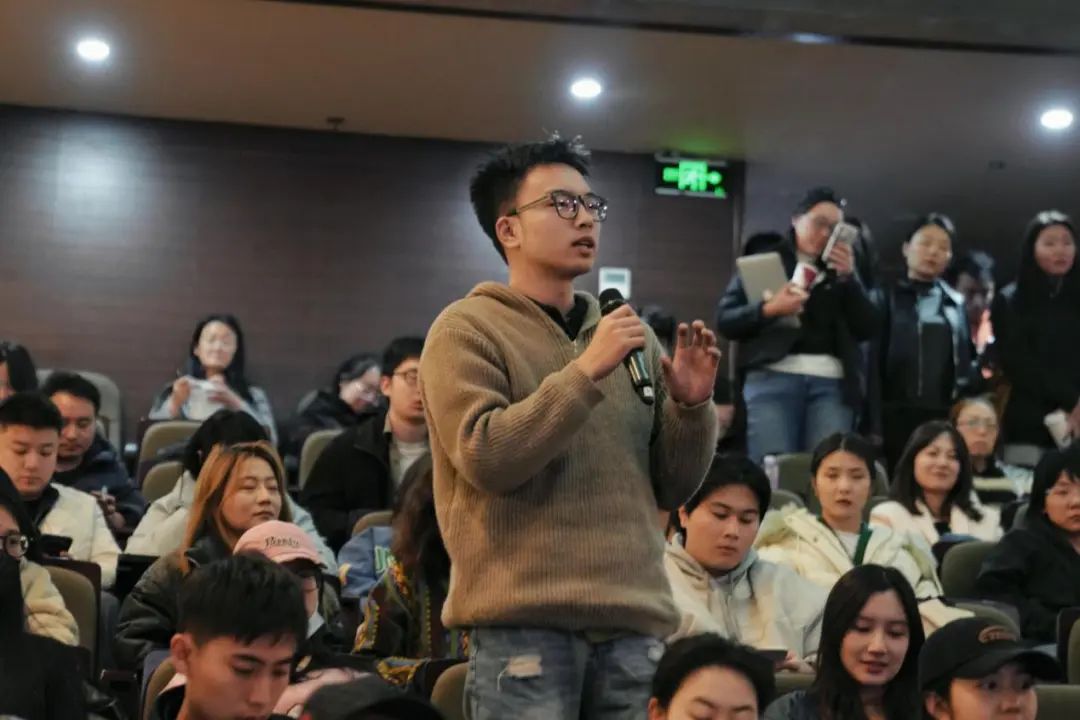
Q&A at Rao Xueman’s Workshop & Masterclass on screenwriting
Rao Xueman: I think that I have gone beyond the conventional self-examination in my writing of novels. I just lead a plain life, and this is actually one of my advantages. Such background, like a blank sheet of paper, gives full rein to imagination of the creators. Young people may find certain things unbearable, but ten years later they will find them insignificant. Therefore, don’t put too much pressure on yourself.
What can help a person grow is to face society and life with a positive attitude. We should cherish every opportunity to go out and see the world. A good screenwriter should have a wide knowledge of the world and all living beings, and translate such experience into their creation material. At that time, you will find that the previous troubles are gone, and you will be able to create excellent works.
Q3: I have found that my writing is biased towards comedy, but I also want to write some realistic works. I’d like to ask you how to make a shift in the style?
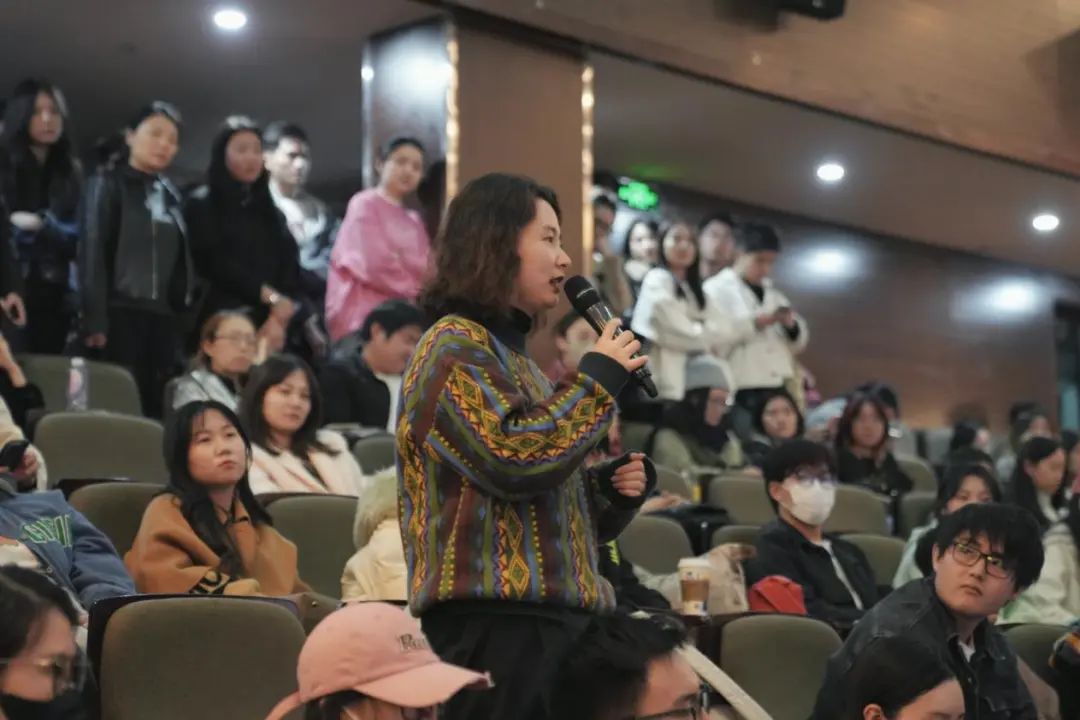
Q&A at Rao Xueman’s Workshop & Masterclass on screenwriting
Rao Xueman: As for the style change, I think it is more important to choose and stick to your creation preferences or genre than to change it at will. You can start by writing what you are best at, and do not force yourself to change your style. As time goes on, you’ll feel more confident when you think about making the switch again.
Q4: How do you work with different types of screenwriters in a screenwriting team? Is there a good cooperation model?
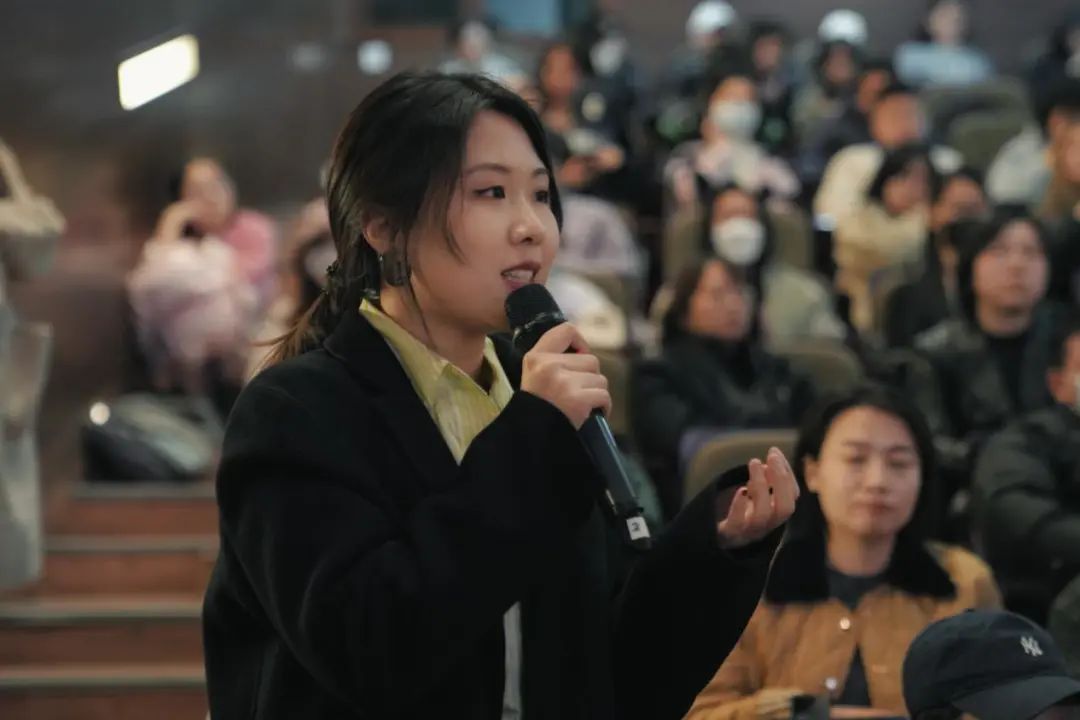
Q&A at Rao Xueman’s Workshop & Masterclass on screenwriting
Rao Xueman: When choosing a partner, prioritize your compatibility in terms of creative concepts, not just their skill level in a professional field. If the partner has excellent professional skills, but disagrees with you on the creative concept, it may be difficult to work together.
As for the model of creation, each team will develop its own way of working and process, and this takes time and running-in. There may be some basic rules and principles to be clarified to begin with, but as the cooperation progresses, the team will find the working model that works best for them.
Finally, don’t force cooperation. If two people have different personalities or styles, then it may be better to go separate ways.
Q5: I am a student studying at the Performance Department. What characteristics are required of the actors in the current youth films?
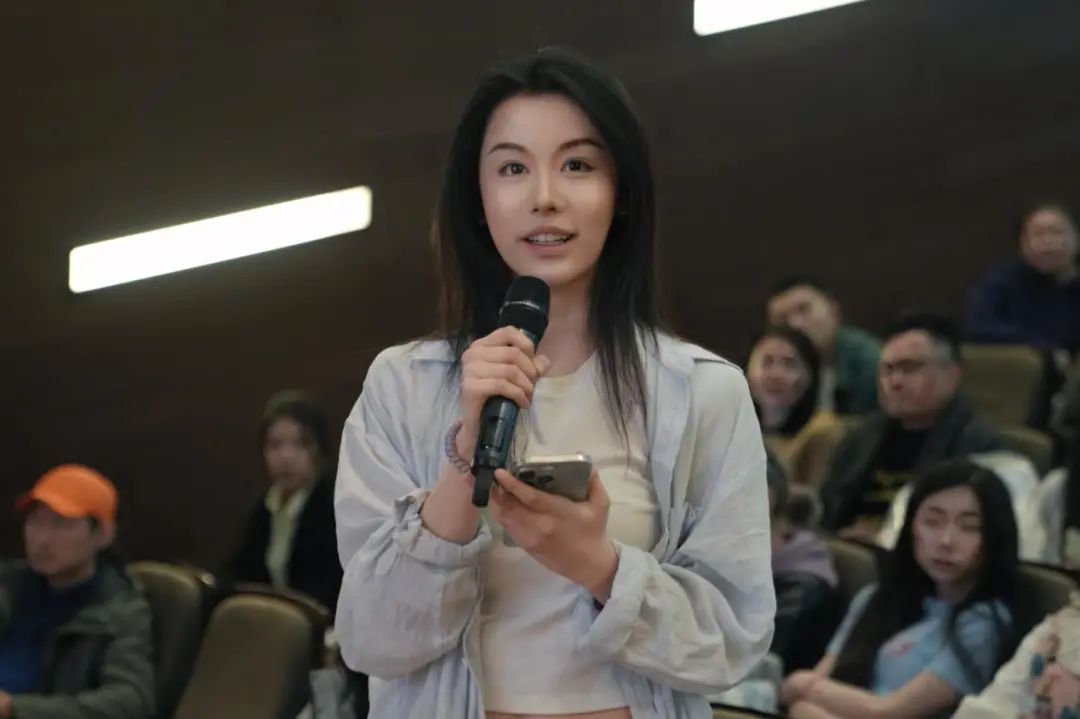
Q&A at Rao Xueman’s Workshop & Masterclass on screenwriting
Rao Xueman: For selection of actors, I think the appearance is without a doubt important. Actors must have good looks to attract the audience. However, what is more critical is whether the actor can relate to the character and make his performance credible. For young actors, it is a boon for them to have the role they want to express.
Young actors must look for the role that suits them best, rather than blindly seeking a bigger platform or more attention. I wish you good luck in having a role that can show your acting skills.
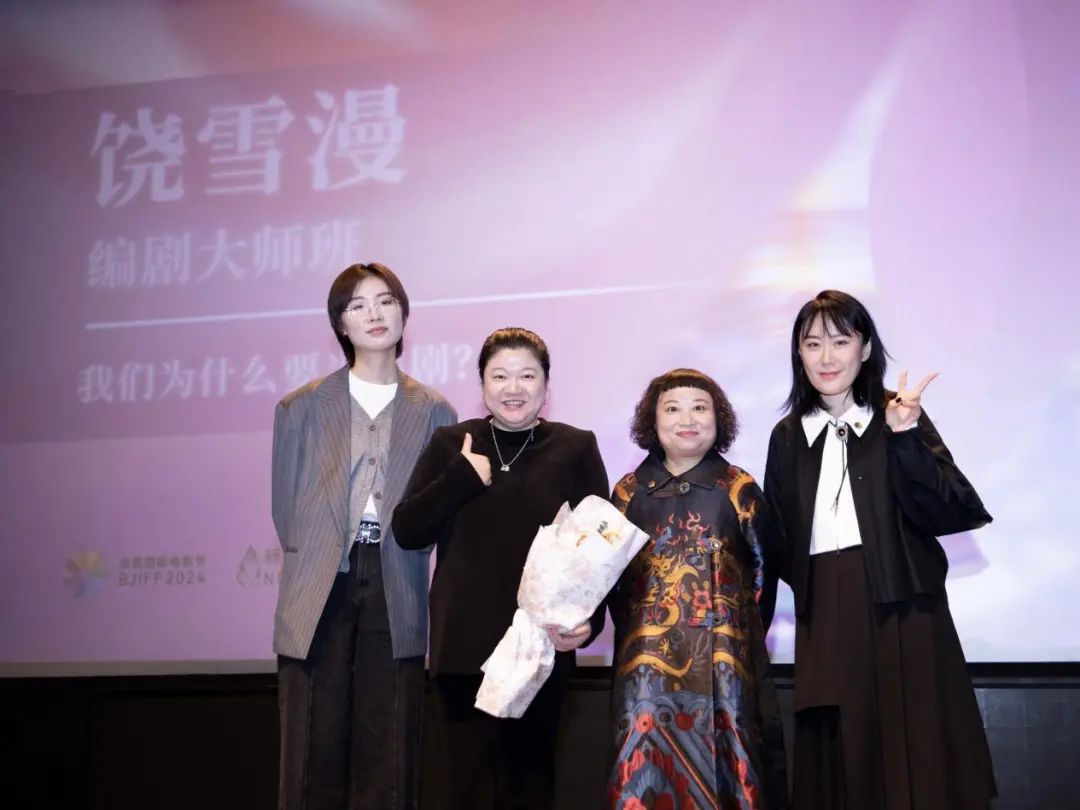
Scene of Rao Xueman’s Workshop & Masterclass on screenwriting
Through the sharing of experience by Rao Xueman, we realize that becoming a screenwriter is inspired by the love of stories, the shaping of characters, and the perception of life. The foundation of every drama is the script, while the soul of the script is the story. Every screenwriter must learn how to capture those refreshingly different inspirations and create memorable characters.
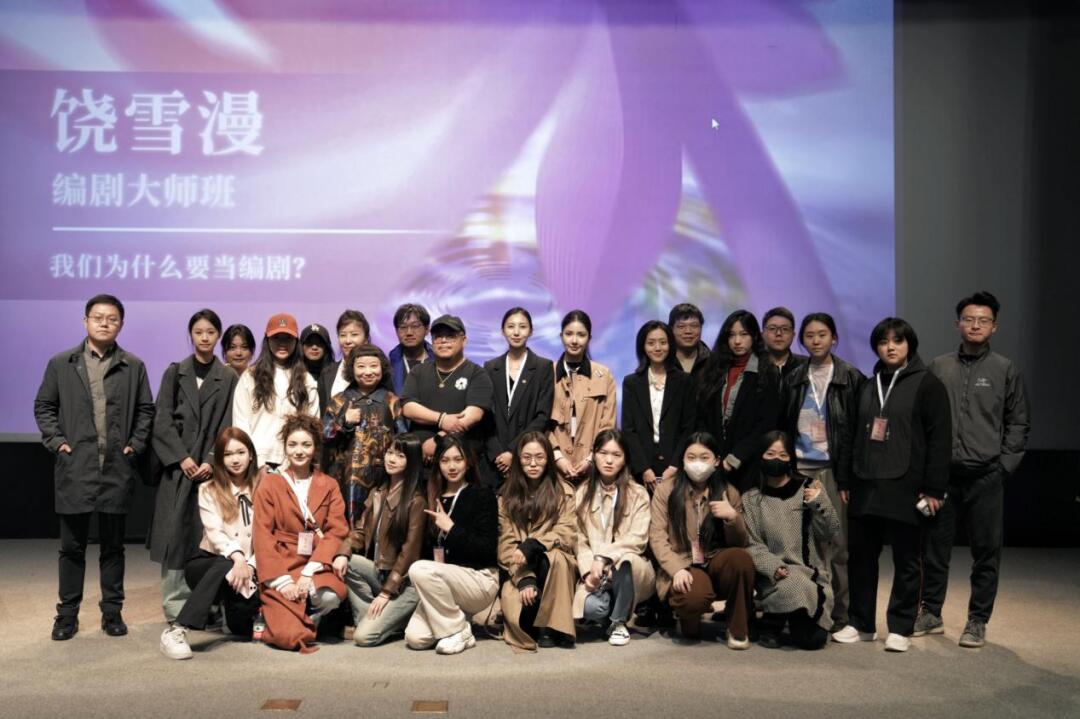
Group photo of Rao Xueman’s Workshop & Masterclass on screenwriting
At the same time, a good screenwriter must have insight into the market and make his lines recognizable, reflecting his personal style in the script. Most importantly, only the screenwriters with a sense of social responsibility can create masterpieces that will endure. I hope that film writers will press ahead with screenwriting with passion and responsibility and write their own stories.
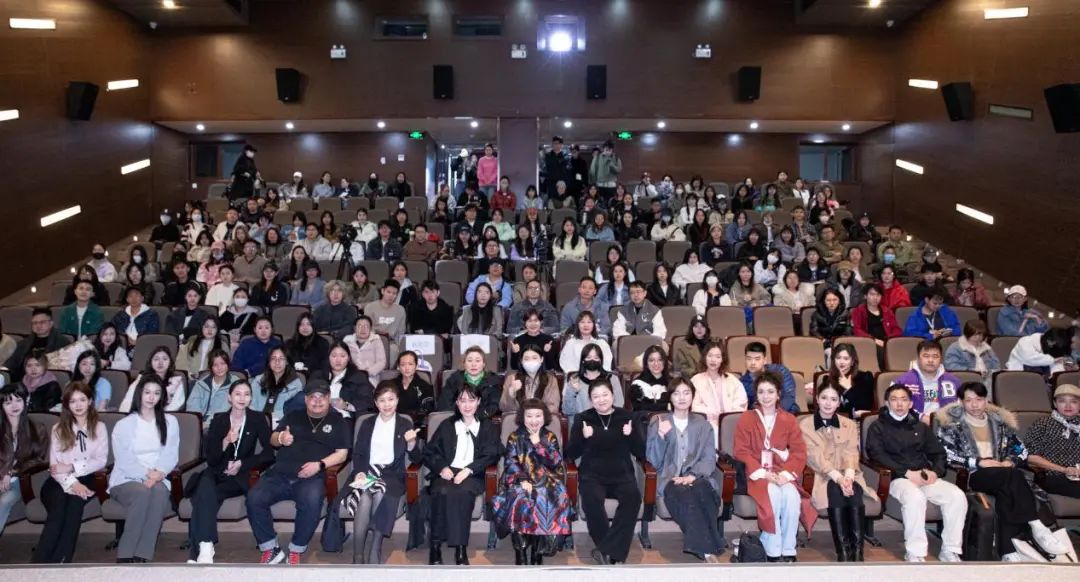
Group photo of Rao Xueman’s Workshop & Masterclass on screenwriting
Please download the Beijing International Film Festival APP for more interesting content

